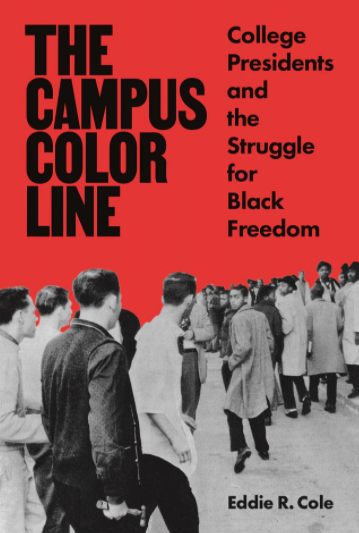
The Campus Color Line: College Presidents and the Struggle for Black Freedom
Eddie R. Cole

Princeton University Press is delighted to offer members, subscribers, and historians a 30% discount on the powerful and timely The Campus Color Line: College Presidents and the Struggle for Black Freedom by Eddie R. Cole. Enter promo code P282 at checkout through 8/31/2021.
Cole is available to speak at events both virtually and in person. His past speaking engagements have included university lecture series, Martin Luther King Day events, and Black History Month celebrations. He is skilled at offering different perspectives on his research for administrators, faculty, and student groups to help them think about their role in pursuing educational equity.
Some of society’s most pressing racial issues—equal educational and employment opportunities, housing discrimination, policing, and free speech—have been closely intertwined with higher education institutions. Although it is commonly known that college students and other activists, as well as politicians, actively participated in the fight for and against these issues during the mid-twentieth century, historical accounts have not adequately focused on the roles that U.S. college presidents played in the debates concerning racism. Based on archival research conducted at a range of colleges and universities across the nation, The Campus Color Line sheds light on the important place of college presidents in the struggle for racial parity.
Focusing on the period between 1948 and 1968, Eddie R. Cole shows how college presidents, during a time of violence and unrest, strategically, yet often silently, initiated and shaped racial policies and practices inside and outside of the educational sphere. With courage and hope, as well as malice and cruelty, college presidents positioned themselves—sometimes precariously—amid conflicting interests and demands. Black college presidents challenged racist policies as their students demonstrated in the streets against segregation, while numerous white presidents lobbied for urban renewal programs that displaced Black communities near campus. Some presidents amended campus speech practices to accommodate white supremacist speakers, even as other academic leaders developed the nation’s first affirmative action programs in higher education.
The Campus Color Line illuminates how the legacy of academic leaders’ policy decisions continues to influence the unfinished struggle for Black freedom and racial justice in education and beyond.
